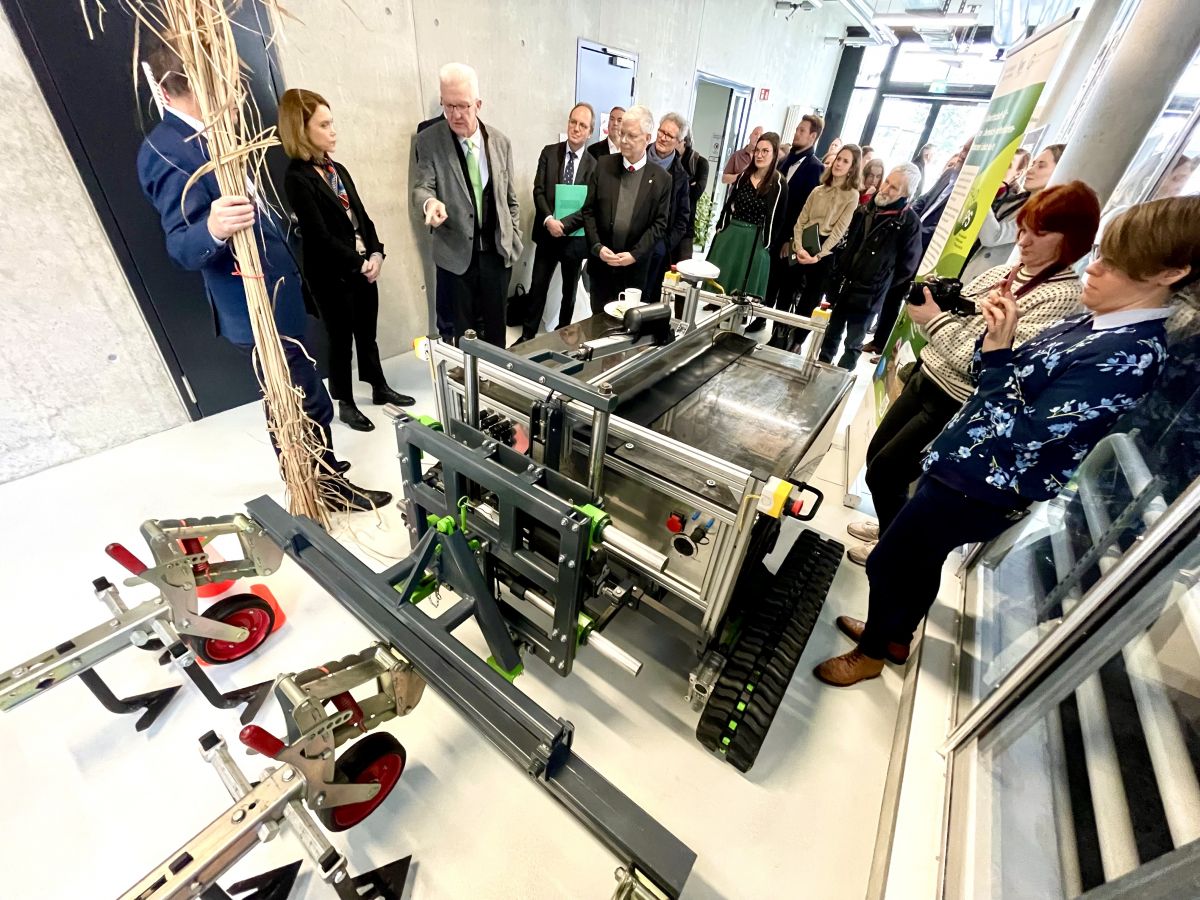Minister President Kretschmann is shown agricultural robots from NOcsPS
19.01.2023
Minister President Kretschmann and Science Minister Olschowski paid tribute to the exhibit during a two-hour science tour at the Phytotechnikum of the University of Hohenheim. The university is responsible for the scientific coordination of the NOcsPS consortium. In addition, the Julius Kühn Institute, the University of Göttingen and 14 industrial partners are involved in the consortium.
NOcsPS pursues the vision of an agriculture that can operate without chemical-synthetic plant protection. Stable yields are to be ensured, among other things, through the use of state-of-the-art technologies for harvesting as well as soil cultivation and care. This also includes the Phoenix agricultural robot.
The front of the robot is equipped with intelligent sensors that can distinguish crops from weeds. To do this, the robot detects plants with camera and laser sensors and evaluates the data in real time using artificial intelligence methods. Due to its low dead weight of 420 kg and its belt drive that is gentle on the soil, Phoenix also protects the soil from compaction. Used in a targeted manner, the robot can contribute to climate- and environmentally-friendly agriculture.
The multifunctional robot is already in use on the experimental fields of the University of Hohenheim to significantly reduce the use of fertilisers and pesticides. This is made possible by the Internet of Things, in which robots and other machines also communicate with each other via the Internet, and by artificial intelligence, which evaluates large amounts of data from agriculture and food management.
